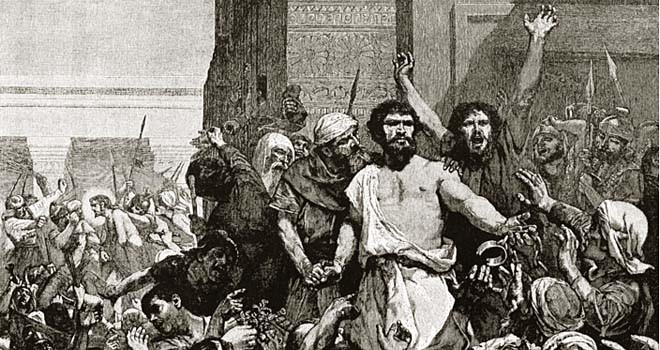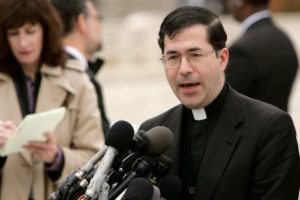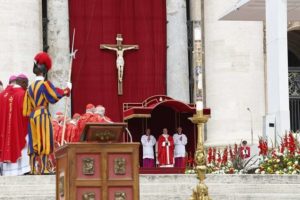Beware of False (Political) Prophets

Published on Crisis Magazine
In Acts 5, we read that Peter and the Apostles have been brought before the Sanhedrin, whose high priest chastises them for preaching in the name of Jesus, which they had been forbidden to do. Peter and the other Apostles respond that “We must obey God, not men” (v. 29). The Sanhedrin, furious, want to put the Apostles to death. At that point, Gamaliel intervenes, pointing out that, if the apostles enjoy divine favor, the Sanhedrin would be wise to restrain themselves from any action against the Apostles. If, however, the preaching and plans of the Apostles are merely human, their efforts will soon dissolve and disappear.
In this context, Gamaliel refers to Theudas. In Biblical scholarship, there are questions about the identity of Theudas and the dates of his failed insurrection against the Romans. The point of Gamaliel’s peroration, though, is plain: Theudas was an impostor, a false messiah, a failed leader. After Theudas was killed, Gamaliel says, his followers scattered and his movement died out. Theudas’s plans were of little consequence—and that was true, said Gamaliel, about others (v. 37), also, whose ideological and military schemes amounted to nothing. That would be the possible fate, as well, of the followers of Jesus, if they were not teaching God’s truth. The Apostles were flogged but went forth joyfully to teach about Jesus the Messiah (vv. 40-42).
“Theudas,” though, has much to teach the student of politics. Chief among his legacies is the lesson that a political scheme that is disconnected from Truth will wither and die. As St. Pope John Paul put it in Centesimus Annus: “If there is no ultimate truth to guide and direct political activity, then ideas and convictions can easily be manipulated for reasons of power. As history demonstrates, a democracy without values [virtues] easily turns into open or thinly disguised totalitarianism. Nor does the Church close her eyes to the danger of fanaticism or fundamentalism among those who, in the name of an ideology which purports to be scientific or religious, claim the right to impose on others their own concept of what is true and good” (#46).
Theudas and his minions throughout history had no truth, so they substituted ideology, promising paradise but delivering hell. In their dystopian worlds, what mattered was the love of power, not the power of love. All their followers had to do, they said, was trust them—and the führer, or the duce, or the vozhd, or the great helmsman would soon deliver their perverted scheme of social justice. Again Pope St. John Paul: “When people think they possess the secret of a perfect social organization which makes evil impossible, they also think that they can use any means, including violence and deceit, in order to bring that organization into being. Politics then becomes a ‘secular religion’ which operates under the illusion of creating paradise in this world. But no political society—which possesses its own autonomy and laws—can ever be confused with the Kingdom of God” (Centesimus Annus, #25) . . . . . .



